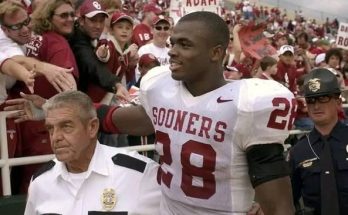Mike Krzyzewski, one of the most iconic figures in college basketball history, has never shied away from speaking his mind. Known affectionately as “Coach K,” Krzyzewski built a legacy at Duke University that few can match, winning five NCAA championships, coaching the U.S. Olympic team to multiple gold medals, and shaping the careers of countless athletes. Yet, despite his monumental success and revered status, Coach K has not hesitated to voice serious concerns about the current state of NCAA sports, reflecting a deep unease about how college athletics have evolved in recent years.
Krzyzewski’s critique comes at a time when the NCAA is navigating turbulent waters. Issues ranging from the commercialization of college sports to the complexities introduced by name, image, and likeness (NIL) rights have fundamentally transformed the landscape. The sport that once prided itself on amateurism and the pure pursuit of excellence now finds itself grappling with a barrage of challenges, many of which have left even seasoned insiders like Krzyzewski unsettled. His candid remarks provide a unique perspective from someone who helped build the NCAA’s reputation to what it once was and who now sees it veering in troubling directions.
At the heart of Krzyzewski’s criticism is the way college sports have become increasingly commercialized. While revenue generation has always played a role in college athletics, the scale and intensity have surged exponentially in the last decade. Television contracts worth billions, lucrative sponsorships, and the introduction of NIL deals have transformed student-athletes into de facto professionals, challenging the very notion of amateurism that defined the NCAA for so long. Krzyzewski worries that the fundamental purpose of college sports is being overshadowed by financial incentives, and that the emphasis on business is undermining the educational and developmental goals that should be paramount.
Coach K has long emphasized the importance of education and character development in college athletics. He sees sports as a vehicle for young people to learn discipline, teamwork, leadership, and perseverance—qualities that transcend the court or field. Yet today’s NCAA environment, in his view, often prioritizes winning and profit over personal growth and integrity. This shift troubles him deeply, as it risks alienating athletes from the values that make sports meaningful beyond the scoreboard. Krzyzewski’s vision of college sports is one where student-athletes are students first and athletes second, but he fears that line is blurring dangerously.
Another aspect that Krzyzewski has repeatedly addressed is the increasing pressure on athletes, coaches, and programs to succeed at any cost. The stakes have never been higher, with universities pouring massive resources into their athletic departments to chase national championships and the revenue that follows. This win-at-all-cost mentality, according to Coach K, has led to a toxic culture in some programs where ethics are compromised and mental health is neglected. The relentless demand for success can create an environment of stress and burnout, both for players and coaches, and ultimately detracts from the joy and purity of the game.
Krzyzewski’s concerns also extend to the inconsistent and sometimes unfair nature of NCAA regulations and enforcement. The NCAA’s rules have historically been complex and, at times, arbitrary, leading to confusion and frustration among programs and athletes alike. The introduction of NIL rights has complicated matters further, with different states and schools adopting varying policies that create an uneven playing field. Coach K has expressed skepticism about how well the NCAA is equipped to manage these changes, fearing that the lack of clear, uniform guidelines could harm the integrity of college sports and create inequities between programs.
Importantly, Krzyzewski is not simply lamenting the past out of nostalgia. He acknowledges that change is inevitable and, in many ways, necessary. The rise of NIL rights, for example, empowers athletes to benefit from their own marketability, which he sees as a positive development in terms of fairness and opportunity. However, his call is for balance—a way to integrate these new realities while preserving the core values and spirit that have made college sports special for generations. He advocates for reforms that support athletes both on and off the field, including better education, mental health resources, and protections against exploitation.
Throughout his commentary, Coach K has stressed the importance of leadership in navigating the NCAA’s future. He believes that university presidents, athletic directors, coaches, and NCAA officials must collaborate with a shared commitment to the welfare of student-athletes. Decisions should be driven by principles rather than profit, and the voices of athletes themselves should play a central role in shaping policies. Krzyzewski has consistently urged the NCAA to act with transparency and accountability, recognizing that its legitimacy depends on public trust and the genuine well-being of the young men and women who participate.
Krzyzewski’s critique resonates particularly strongly because of his own status as a revered coach who spent four decades at Duke shaping champions while maintaining a reputation for integrity and respect. His approach to coaching was never about cutting corners or bending rules but about building character and fostering an environment where athletes could thrive holistically. His concerns about the current state of NCAA sports are rooted in firsthand experience and a deep love for the game. To hear someone of his stature warn that college sports risk losing their soul is a powerful message that commands attention.
It is also worth noting that Coach K’s remarks reflect broader conversations happening across college sports. Many former and current coaches, administrators, and athletes have voiced similar worries about the pressures of commercialization, the ethical challenges of NIL, and the need to protect athlete welfare. These issues are part of an ongoing reckoning in college athletics, one that will likely shape the NCAA’s trajectory for decades to come. As the landscape continues to evolve, voices like Krzyzewski’s serve as a vital reminder of what is truly at stake.
One area where Krzyzewski has urged particular caution is the treatment of mental health in college sports. With the intense scrutiny and expectations placed on student-athletes today, mental health challenges have become more visible and urgent. Coach K has praised recent efforts to increase awareness and support but insists that more must be done. He points out that the relentless pressure to perform, combined with the complex demands of balancing academics, athletics, and personal life, can take a heavy toll. A culture shift is needed—one that destigmatizes mental health struggles and provides accessible resources so that athletes can thrive not just physically, but emotionally and psychologically.
Coach K’s perspective also touches on the relationship between coaches and athletes. In today’s climate, where NIL deals and transfer portals have created new dynamics, the traditional role of the coach as a mentor and leader is evolving. Krzyzewski remains a staunch advocate for coaches who prioritize their players’ long-term growth over short-term gains. He cautions against a transactional view of coaching where athletes are simply assets to be managed for competitive advantage. Instead, he champions a holistic approach where coaches are educators, role models, and supporters—someone who invests in the full development of the student-athlete.
Moreover, Krzyzewski is vocal about the importance of maintaining competitive balance in college sports. The influx of money and NIL deals has the potential to create disparities between powerhouse programs and smaller schools. He worries that if unchecked, this could undermine the level playing field that is essential to the spirit of college competition. For Krzyzewski, ensuring equitable access and opportunity is critical to preserving the excitement and unpredictability that makes college sports so captivating for fans and participants alike.
Despite these pointed critiques, Krzyzewski remains hopeful about the future of NCAA sports. He believes that with thoughtful leadership and a recommitment to core values, college athletics can evolve in ways that honor tradition while embracing progress. He calls on all stakeholders to come together with a shared sense of responsibility to protect the essence of college sports: education, integrity, and the transformative power of athletic competition. His vision is one where athletes emerge not just as champions on the court or field but as well-rounded individuals prepared for success in all facets of life.
In reflecting on his own career, Krzyzewski often cites the profound impact that college sports had on his own growth and character. He sees the current challenges as a critical juncture—an opportunity to reaffirm the purpose of college athletics and ensure it serves the next generation as well as it did his. For fans, players, and institutions alike, his message is clear: while change is inevitable, it must be guided by a steadfast commitment to the values that have long made NCAA sports a cherished part of American culture.
In summary, Mike Krzyzewski’s critique of the current state of NCAA sports is a clarion call for reflection, reform, and renewal. He acknowledges the complexities and opportunities brought by recent changes, particularly around commercialization and NIL rights, but warns against losing sight of what truly matters. For him, college sports should be a place where young athletes grow as students, leaders, and people—where integrity, education, and mental health are prioritized over profits and pressures. His legacy as a coach who exemplified these ideals gives his words significant weight and urgency. As the NCAA faces an uncertain future, Coach K’s voice serves as a guiding light, reminding all involved to preserve the soul of college sports even amid inevitable transformation.



